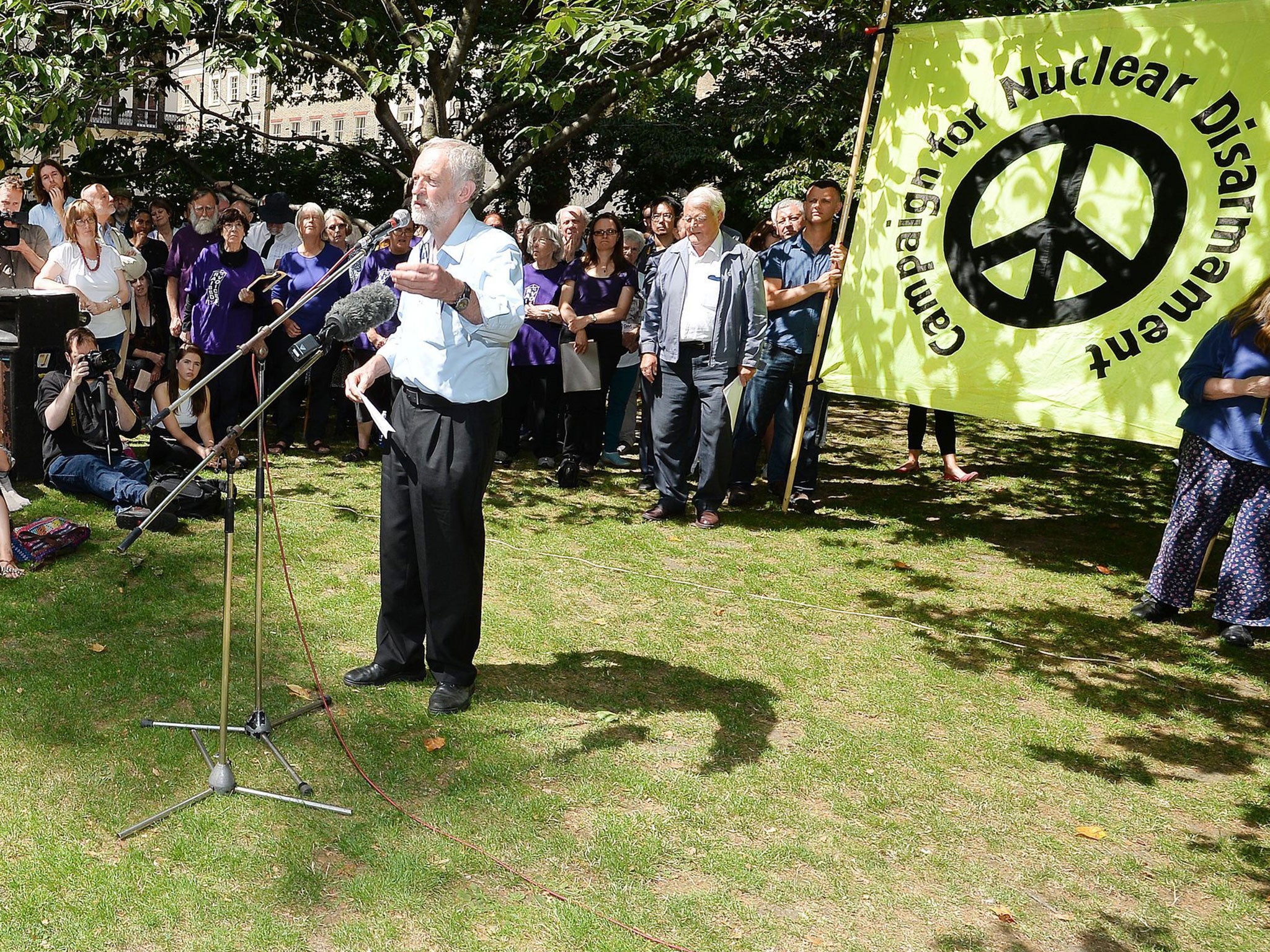Ministry of Defence condemn army general behind Jeremy Corbyn 'mutiny' threat
Some Conservatives also expressed disquiet with right-wing MEP Daniel Hannan describing the general as an “idiot”

The Ministry of Defence moved to condemn a serving army general who warned that Jeremy Corbyn could face “a mutiny” from the military if he became Prime Minister. In highly contentious remarks, the unnamed army commander said any attempt by Mr Corbyn to take Britain out of Nato, scrap Trident or cut the size of Britain’s forces would be fought by means “fair or foul”.
The general added that a Labour victory under Mr Corbyn in 2020 would result in “mass resignations at all levels” and there would be the “very real prospect of an event which would effectively be a mutiny”. While Labour publicly refused to comment on the views of what it described as an “anonymous general”, in private senior sources described the remarks as “pretty outrageous”.
“You can’t have serving officers effectively threatening a coup against an elected government,” they said. “This general seems to have forgotten that we live in a democracy.” A Ministry of Defence source said it was unacceptable for a serving officer to make political comments about a potential “future government”.
Even some Conservatives expressed disquiet. The right-wing Tory MEP Daniel Hannan described the general as an “idiot”. “We’re not Bolivia for God’s sake,” he said. The general, who is understood to have served in Northern Ireland in the 1980s, claimed that the armed forces would take “direct action” to prevent a Corbyn government from downgrading it and went on to say that his victory had been greeted with “wholesale dismay” even among Labour-supporting soldiers.
“There would be mass resignations at all levels and you would face the very real prospect of an event which would effectively be a mutiny,” the general said.
“Feelings are running very high within the armed forces. You would see a major break in convention with senior generals directly and publicly challenging Corbyn over vital, important policy decisions such as Trident, pulling out of Nato and any plans to emasculate and shrink the size of the armed forces.
“The Army just wouldn’t stand for it. The general staff would not allow a Prime Minister to jeopardise the security of this country and people would use whatever means possible, fair or foul, to prevent that. You can’t put a maverick in charge of a country’s security.”
One political government source suggested that while the general’s remark might have been unwise, it did reflect broader concern among service chiefs about the direction Mr Corbyn might take the Labour Party.
“It does show the level of concern in the armed forces, which in itself is alarming,” the source said.
“You only need to see the passionate defence of Nato made recently by the Chief of the Defence Staff to see where they stand on some of these issues.”
An MoD source said “no one” at the top of the military would ever “sign off” on a general “talking about political issues” in such a way.
“It would be fair to say that these remarks are not helpful,” the MoD source commented. “No one thinks that it is a good idea for a senior serving officer to undermine a potential future government.”
However, a Ministry of Defence spokesman ruled out a leak inquiry on the grounds that it would be almost impossible to identify the culprit. Despite cutbacks, there are still around 100 serving generals in the army.
Mr Corbyn also faces opposition from his own front bench over his positions on defence, particularly on whether to back air strikes against Isis positions in Syria. Lord Falconer, the shadow Justice Secretary, said he would be prepared to back a bombing campaign as long as it had proper military and legal justification.
Hilary Benn, the shadow Foreign Secretary, also refused to rule out supporting military intervention, saying he would “look at the objectives”.
Mr Corbyn will have to decide whether to give his MPs a free vote on the issue to avoid resignations.
It was suggested that up to half of the Shadow Cabinet could support the Government at a vote.
Lord Falconer, who was Lord Chancellor under Tony Blair, listed a string of issues on which he differs from Mr Corbyn – including abolishing academies, leaving Nato, keeping the energy companies in private hands, independence for the Bank of England, renewing Trident and the benefit cap. But said he was able to serve because Mr Corbyn is “very, very pluralistic”.
“We’ve had the earthquake,” he said. “The time has come to work out what is the forward-looking position of the Labour Party and Jeremy, to his credit, is a very, very pluralistic person.”
Join our commenting forum
Join thought-provoking conversations, follow other Independent readers and see their replies
Comments
Bookmark popover
Removed from bookmarks